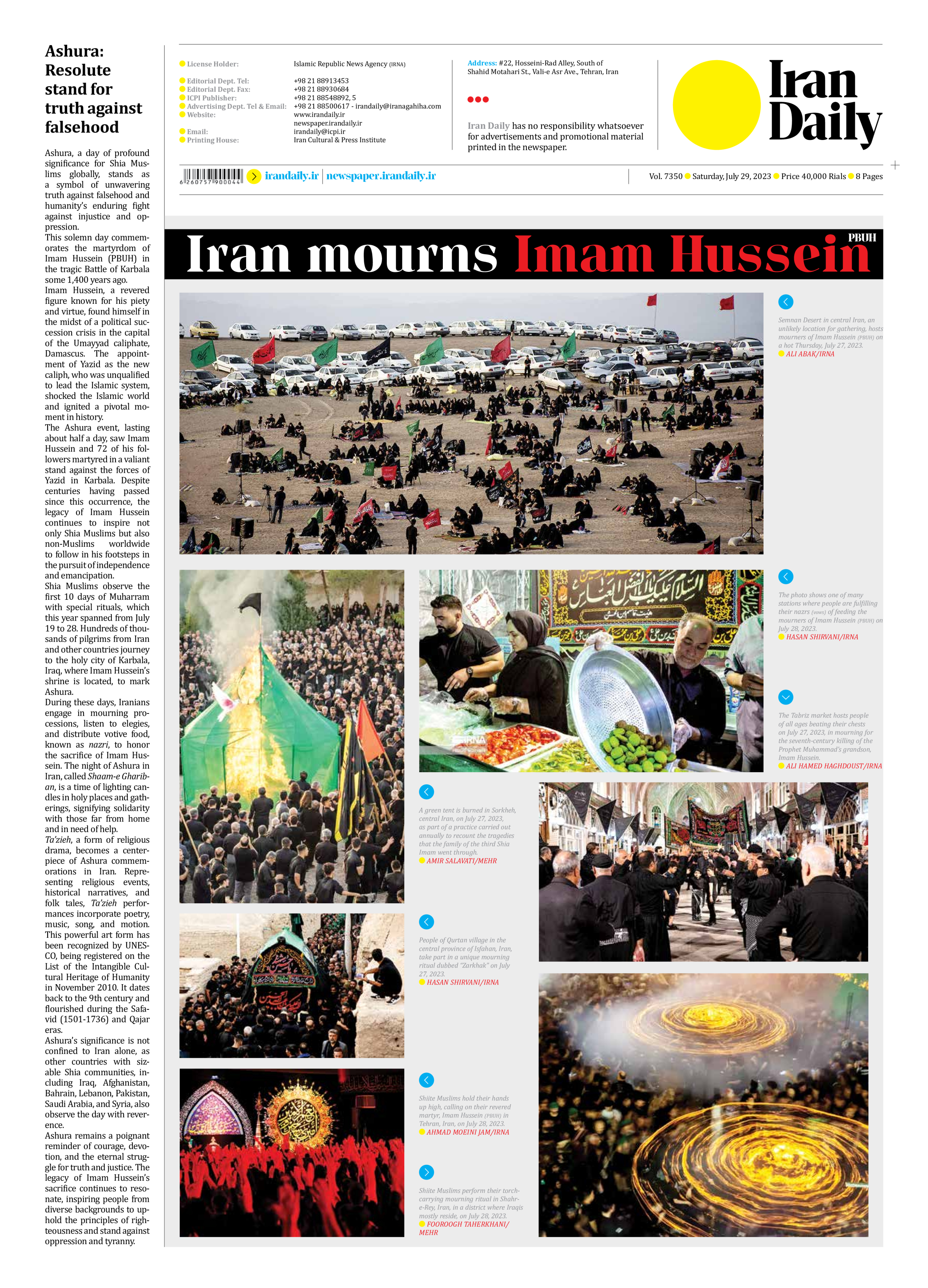
Ashura: Resolute stand for truth against falsehood
Ashura, a day of profound significance for Shia Muslims globally, stands as a symbol of unwavering truth against falsehood and humanity’s enduring fight against injustice and oppression.
This solemn day commemorates the martyrdom of Imam Hussein (PBUH) in the tragic Battle of Karbala some 1,400 years ago.
Imam Hussein, a revered figure known for his piety and virtue, found himself in the midst of a political succession crisis in the capital of the Umayyad caliphate, Damascus. The appointment of Yazid as the new caliph, who was unqualified to lead the Islamic system, shocked the Islamic world and ignited a pivotal moment in history.
The Ashura event, lasting about half a day, saw Imam Hussein and 72 of his followers martyred in a valiant stand against the forces of Yazid in Karbala. Despite centuries having passed since this occurrence, the legacy of Imam Hussein continues to inspire not only Shia Muslims but also non-Muslims worldwide to follow in his footsteps in the pursuit of independence and emancipation.
Shia Muslims observe the first 10 days of Muharram with special rituals, which this year spanned from July 19 to 28. Hundreds of thousands of pilgrims from Iran and other countries journey to the holy city of Karbala, Iraq, where Imam Hussein’s shrine is located, to mark Ashura.
During these days, Iranians engage in mourning processions, listen to elegies, and distribute votive food, known as nazri, to honor the sacrifice of Imam Hussein. The night of Ashura in Iran, called Shaam-e Ghariban, is a time of lighting candles in holy places and gatherings, signifying solidarity with those far from home and in need of help.
Ta’zieh, a form of religious drama, becomes a centerpiece of Ashura commemorations in Iran. Representing religious events, historical narratives, and folk tales, Ta’zieh performances incorporate poetry, music, song, and motion. This powerful art form has been recognized by UNESCO, being registered on the List of the Intangible Cultural Heritage of Humanity in November 2010. It dates back to the 9th century and flourished during the Safavid (1501-1736) and Qajar eras.
Ashura’s significance is not confined to Iran alone, as other countries with sizable Shia communities, including Iraq, Afghanistan, Bahrain, Lebanon, Pakistan, Saudi Arabia, and Syria, also observe the day with reverence.
Ashura remains a poignant reminder of courage, devotion, and the eternal struggle for truth and justice. The legacy of Imam Hussein’s sacrifice continues to resonate, inspiring people from diverse backgrounds to uphold the principles of righteousness and stand against oppression and tyranny.







